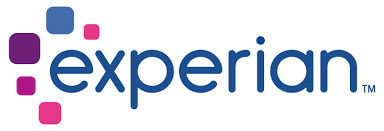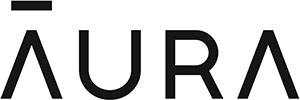Incidents of identity theft continue to rise across the country with roughly 5% of all Americans finding themselves victims of these crimes each year. Fortunately, there are several steps you can take to protect your personal information from identity fraud. Some of these are common sense safety precautions, but one of the best forms of protection is purchasing identity theft insurance from a reputable provider.
Best Identity Theft Insurance Companies
All types of insurance can help safeguard our most valuable possessions from harm, be it health insurance, life insurance, or car insurance. When you purchase identity theft coverage, you’re taking proactive steps to ensure your credit and personal information stays safe and if it does become compromised, you’ll have the tools and support structures in place to remedy the breach quickly.
What Is Identity Theft Insurance?

The best identity theft protection can help you both prevent attacks on your personal data and recover costs if it does become compromised. There are dozens of companies that sell these policies and each will differ slightly in what they offer. However, most include credit monitoring, reimbursement for various fees associated with an identity breach, regular credit reports, bank account monitoring, and fraud alerts. Like any insurance plan, you’ll pay a monthly or yearly premium in exchange for certain protections, and nearly all companies offer two to four tiers of coverage based on your needs.
Best Identity Theft Insurance Companies in 2025
Identity Guard

Identity Guard is a service provided by IBM using the groundbreaking Watson AI to help catch identity thieves before they can get to your information. This proprietary software learns about fraud patterns unique to you and then uses this data to help prevent further incidents from taking place by alerting you to potential dangers. Identity Guard can provide support from all three major credit reporting agencies and offers three tiers of service: Value, Total, and Ultra.
Its Value service starts at $8.99/month for individuals and $14.99/month for families, while its Ultra plan starts at $29.99/month for individuals and $39.99/month for families. However, credit monitoring is not available on the lowest tier plan, and you only receive credit reports when you sign up for the ultra plan.
Experian IdentityWorks

Experian’s ID theft insurance, IdentityWorks, is offered to both individuals and families. Since Experian is an established credit bureau, it uses its data to issue a fraud alert for any new credit inquiries, check your FICO credit score, and monitor your bank accounts for suspicious activity.
The company offers a free 30-day trial period and customers can choose between a Plus or Premium plan. Those who choose the Premium plan also receive credit history reports from the other two main reporting agencies, TransUnion and Equifax.
LifeLock

LifeLock by Norton has individual plans starting at just $7.50/month with its Standard plan, going up to an Ultimate Plus family plan for $38.99/month. The company also offers a 60-day money back guarantee on all its annual membership plans, so if you’re not completely satisfied with the service you’ll get a full refund.
Many customers like to add the LifeLock plan to their existing Norton 360 cybersecurity membership since the two plans offer comprehensive identity theft protection services. There are a few drawbacks, however. LifeLock’s lower-tiered plans limit reports to just one credit monitoring service, there’s no family plan option (though they do offer “junior” plans if you want to protect your child’s information), and all plan rates increase after the first year. That said, their highest tier plan includes many protections that other companies don’t offer such as social media monitoring, home title monitoring, and payday loan monitoring.
IdentityForce

IdentityForce is TransUnion’s insurance product and offers some of the most comprehensive coverage in the market, but its price for a standard plan is quite high compared with its competitors, starting at $29.99/month. However, this does include credit monitoring using all three major credit reporting agencies, access to a VPN for enhanced privacy when using the internet, social media and cell phone monitoring, and $1 million in ID theft insurance.
The basic package also includes medical ID protection, investment account monitoring, and social security number tracking. The biggest drawback of this plan is the higher price tag, but for all annual memberships, you’ll get two free months of service.
PrivacyGuard

While many companies bundle together both identity protection and credit monitoring, PrivacyGuard offers these two services separately which may be appealing to customers who are only looking for specific features. However, if you wish to mix the two services, it will cost more on average than some of its competitors and there are currently no family plans available.
With PrivacyGuard, you can get solid identity protection for only $9.99/month with regular credit report monitoring from the three major agencies, as well as credit card and bank account monitoring. Additionally, even their most basic plan includes $1 million in insurance coverage.
Aura

Aura is a good choice for those who own and use multiple devices during their day and are looking for one comprehensive plan that covers them all. The individual plan starts at $15/month and covers up to 10 devices; the couples plan increases the coverage to 20 devices; and, the family plan covers up to 50 devices.
Additionally, the family plan includes parental controls to limit screen time and content on all devices. Aura also includes many internet-safety features that other plans don't, such as a VPN, malware protection, and antivirus software.
IdentityIQ

IdentityIQ is ideal for those who are looking for great identity and credit monitoring in one plan. The company offers four tiers of plans with its most basic (the Secure plan) costing only $6.99/month. This is one of the lowest prices in the field and includes daily credit monitoring, dark web monitoring, lost wallet assistance, and $1 million in insurance coverage.
For those who want more robust coverage, they can choose from Secure Plus, Secure Pro, or Secure Max. The highest tier plan includes credit reports from all three major reporting agencies, crime alerts if someone uses your name, and an additional $25,000 in identity theft insurance.
Allstate

One major benefit of the Allstate identity protection plan is that it can be bundled with other policies like homeowners or auto insurance, allowing customers to consolidate all their plans under one carrier.
The company’s Digital Footprint service alerts you anytime someone uses your data or opens a new account under your name. It also monitors social media, credit, and bank accounts and provides up to $500,000 coverage in stolen funds reimbursement.
What Does Identity Theft Insurance Cover?
Most ID theft protection policies cover expenses that an individual incurs after the fraud has occurred. However, it’s worth noting that most plans also include services like identity monitoring and credit monitoring that can prevent theft from happening in the first place.
Typically, most plans cover costs directly associated with the ID theft, excluding any financial losses such as charges made by a thief as these can often be reversed by your bank or other financial institution. Coverage can also include attorney and other legal fees, notary fees, lost wages, child care costs, copies of your credit report, credit application fees, phone bills, and mailing costs.
How Much Does Identity Theft Insurance Cost?
You may already have some identity protection through your homeowners insurance, but this is typically limited and may not provide as much coverage as you’d like. If you choose to purchase protection in addition to this, you have a few options.
Many homeowner plans have riders you can add identity protection to your existing policy which could be as little as $10 extra a month. However, you may wish to purchase a more comprehensive policy from another provider.
For basic plans, most consumers will spend between $10 and $20 per month for coverage, while the highest tier plans will cost upwards of $30 to $40 per month.
Tips for Avoiding Identity Theft

Of course, obtaining an insurance policy can only do so much to prevent identity theft, and there are several steps consumers should be taking on their own to avoid situations like this in the first place.
One way an identity thief will try to steal your information is by physically taking documents or cards away from you, and there are simple measures you can take to prevent this. First, don’t carry too much personal information with you in your wallet or purse such as your passport, Social Security card, or medical ID card.
If a thief obtains one of your credit cards, it’s a fairly simple process to alert your bank and cancel the card, but once they have information like your social security number, your safety could be compromised. You should also always take ATM receipts with you instead of leaving them in the machine or on the counter. Although these will hide some of your information, they won’t hide it all and this can be used in conjunction with other data that’s been stolen.
Another big step you can take to avoid being an identity theft victim is to make sure you’re using the internet safely and all your devices are as secure as possible including phones, tablets, laptops, and desktop computers. Many identity theft policies include services like antivirus software and social media monitoring, but you can also educate yourself on common phishing or pharming scams, update your computer’s operating systems regularly, and never give out personal information over the internet unless you are 100% sure of the source. You can also protect the actual devices themselves by investing in a good home security system.
Lastly, you should order and review copies of your credit report regularly, looking for mistakes or inconsistencies that could indicate you’ve been a victim of stolen identity. The earlier you can catch these breaches, the easier it will be to stop the thieves and perform a full identity restoration.
How To Choose the Best Identity Theft Insurance
The type of plan you choose will depend on several factors such as your level of risk, whether you’ve had your identity stolen in the past, how many devices you want to protect, how many members of your family also need coverage, and whether you’d like credit monitoring services along with it.
If you’re looking for the most comprehensive coverage for all aspects of your life, you should consider combining the best credit monitoring services with the best identity monitoring services. Many times these two areas have considerable overlap in terms of the tools and resources you’ll get. If protection and deterrence are a priority for you, you should sign up for a policy that includes both of these benefits.
You also may want to consider how many credit bureaus each plan pulls from when issuing an identity theft report. There are three main credit reporting agencies in the U.S., and many of the most basic policies only use one agency. It’s quite common that incidents of fraud won’t show up on every report which is why the three agencies exist—to give an accurate and comprehensive picture of what your credit looks like.
However, if you’re new to the world of identity theft protection, and you want to try it out for a year to see what kind of plan works best for you, a lower-tier option may be a good place to start.






